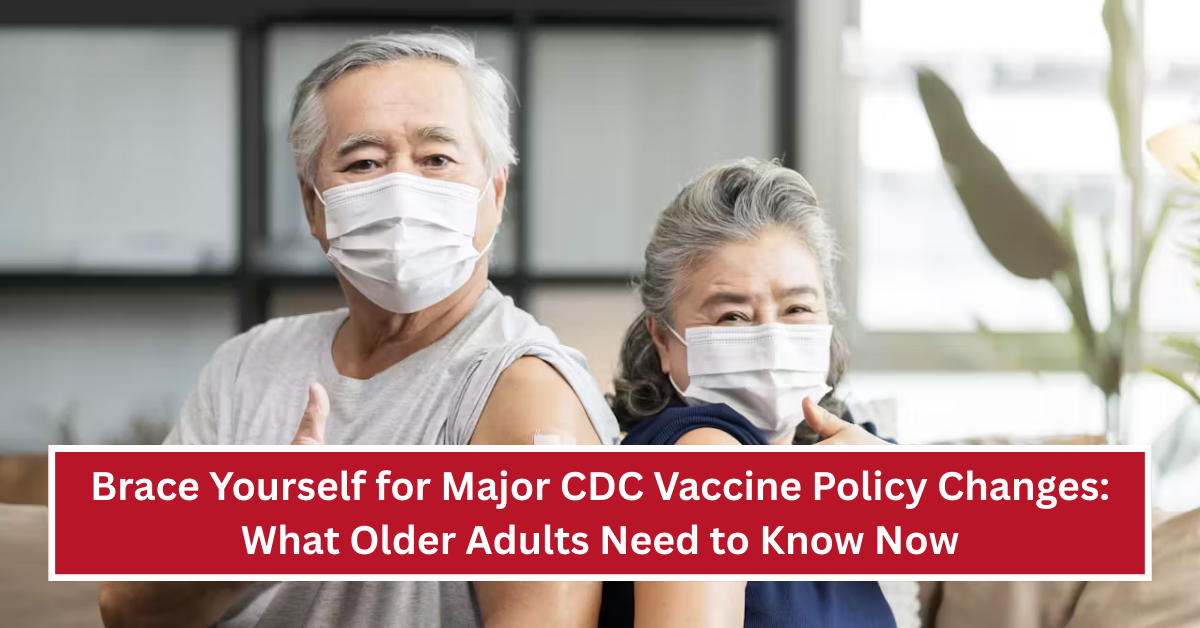The vaccine policy landscape in the United States is about to see some significant changes that could impact millions of older adults. The Centers for Disease Control and Prevention (CDC) is facing potential shifts in its immunization recommendations. This comes as a panel of experts is considering restrictions on vaccination advice specifically for people in the older age group. If these changes happen, they could alter how vaccines are given to seniors across the country.
This upcoming policy shake-up has raised questions and concerns among healthcare workers, families, and older individuals themselves. As these discussions unfold, it is important for everyone—especially younger generations supporting their elders—to understand what might change and why these new recommendations are being considered. Knowing the facts will help us all prepare for the future of vaccines in a rapidly evolving health environment.
What Exactly Is Changing at the CDC?
The CDC has long been the primary authority in setting vaccination guidelines for all age groups in the United States. Currently, older adults are recommended to receive multiple vaccines, including those for flu, shingles, and pneumonia. However, the advisory panel reviewing these guidelines is considering scaling back some of these recommendations. The focus is on making vaccine use more targeted to prevent unnecessary immunizations while still protecting health.
This means that some older adults may no longer be advised to get certain vaccines unless they are at high risk due to underlying health conditions or other factors. The goal is to balance vaccine benefits with potential risks or side effects, especially as the immune system weakens naturally with age. This approach could lead to a more personalized vaccination strategy instead of blanket recommendations for all seniors.
Reasons Behind the Proposed Policy Shift
Experts on the CDC panel are looking closely at data about vaccine effectiveness and safety in older populations. As people age, their immune responses can vary widely, causing vaccines to sometimes be less effective or to have stronger side effects. New research policies aim to use vaccines more wisely by focusing on who truly benefits and avoiding unnecessary shots.
Another factor influencing the proposed changes is the growing number of vaccines available today compared to a decade ago. With vaccines for diseases like COVID-19 added to the mix, the total vaccine load for older adults has increased significantly. The panel wants to ensure immunization schedules remain practical and comfortable for seniors while maintaining strong protection against serious illnesses.
How Could These Changes Affect Older Adults and Their Families?
If the CDC adopts more restrictive vaccine recommendations, many older adults may receive fewer shots each year. This can be a relief for some who are wary of potential side effects, but it could also cause confusion about what vaccines are still necessary. Families might find themselves needing to discuss these changes with doctors to decide the best plan for their loved ones.
For younger family members, especially those who play a caregiving role, this means staying informed and helping older relatives navigate their vaccination options. It highlights the importance of regular health check-ups and open conversations with healthcare providers. Being proactive will ensure that seniors continue to receive protection tailored to their personal health needs.
What Should You Do Right Now?
The policy changes are still under discussion, so it is important to keep an eye on official CDC announcements for the latest updates. Meanwhile, older adults should continue following current vaccine guidelines provided by their doctors. Maintaining regular appointments and asking questions about any new vaccine developments is key to staying protected.
For younger people supporting their older family members, encourage them to speak with healthcare professionals about vaccine schedules. Staying connected and involved not only helps ensure proper immunization but also provides peace of mind during these uncertain times. Knowledge and communication remain the best tools to handle upcoming vaccine policy changes.
Looking Ahead: What This Means for Public Health
The CDC’s potential vaccine policy changes reflect a larger effort to make healthcare more precise and personalized. By focusing recommendations on individual risk factors, the aim is to use medical resources efficiently and enhance patient safety. While the initial shake-up may cause some worry, it could lead to smarter vaccination practices benefiting society as a whole.
For younger generations, this evolving landscape is a reminder to stay informed about public health trends. Understanding how policies shift in response to new science helps us all make better health decisions for ourselves and our communities. Together, we can support older adults through changes and contribute to a healthier future.




